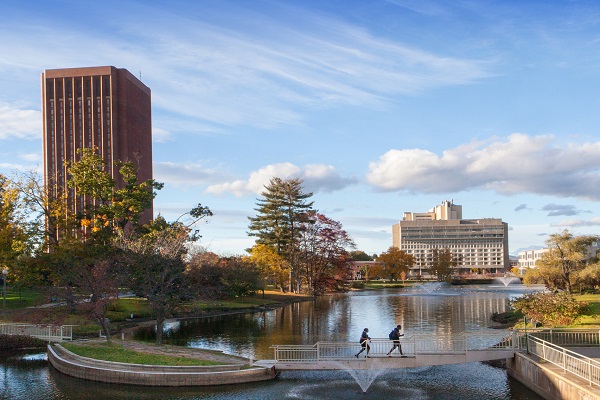University of Massachusetts Amherst: UMass Amherst 2022 Manning/IALS Innovation Award Recipients Announced
The University of Massachusetts Amherst Institute for Applied Life Sciences (IALS) has announced that six campus research teams are recipients of the fourth annual Manning/IALS Innovation Awards. These translational grants advance applied R&D efforts from UMass-based faculty research groups towards the development of spin-out/startup companies and the out-licensing of UMass intellectual property.
The funded projects are:
Hasentech – Barbara Osborne and Lisa Minter, veterinary and animal sciences, College of Natural Sciences,
A Novel Cell-Based Therapy for Graft-versus-Host Disease
ISight – Murugappan Muthukumar, polymer science and engineering, College of Natural Sciences
Curing and Preventing Cataracts and Presbyopia Without Surgery
Latde – Sloan Siegrist, microbiology, College of Natural Sciences
Rapid, Low-cost Diagnostic for Bloodborne Bacterial Infections
Marieb-IV – Karen Giuliano and Juan Jimenez, Elaine Marieb College of Nursing, mechanical and industrial engineering, College of Engineering, A Novel IV Pole to Improve the Safety of IV Medication Administration During Acute Care Hospitalization
NaturaFloc – Chul Park, civil and environmental engineering, College of Engineering
Low Cost, Enhanced Auto-Clarification in Wastewater Treatment
Optical Waters – Mariana Lopes, civil and environmental engineering, College of Engineering
Germicidal Optical Fibers to Prevent Disease-causing Biofilms in Endoscopes
Alumnus Paul Manning and his wife, Diane, have committed $4 million to date to establish and grow the Manning Innovation Program through their family foundation. The gift provides for multiple years of support advancing a robust and sustainable commercialization pipeline of applied and translational research projects from UMass Amherst. IALS provides the organizational framework and further funding for this innovation program, enabling funding a total of six Manning/IALS Innovation Awards every year for the last three years.
“The Manning Innovation award enables our faculty to pursue translational research projects leading to potentially game-changing solutions that that have real-world implications” says Provost and Senior Vice Chancellor for Strategic Academic Planning Tricia Serio.
Manning/IALS awardees are identified by a rigorous selection process that brings together on-campus and off-campus industry and institutional investor expert reviewers with science, engineering, nursing, public health and health sciences, and data/computer science expertise. The IALS Executive Committee, which includes the chancellor, vice chancellor for research & engagement, the provost, the IALS director, and five STEM deans, also contributes to the selection process.
For 2022 six projects were selected from a highly competitive group of applicants. Awarded teams will receive seed funding of up to $100,000 each to achieve translational milestones. The Manning/IALS Innovation Program is a collaborative effort involving IALS, the UMass I-Corps program, the College of Natural Sciences, the Technology Transfer Office, the Berthiaume Center for Entrepreneurship, the Isenberg School of Management, and the UMass Innovation Institute, providing support for commercialization efforts including business training, the protection of intellectual property, access to industry partners, contracting, and mentorship resources.
Peter Reinhart, founding director of IALS, says, “The visionary investment into innovation and entrepreneurship by the Manning Family Foundation is transformative on this campus. We are now able to mentor and grow a ‘pipeline’ of technology and startups addressing societal unmet needs.”
Paul Manning, a 1977 graduate of UMass Amherst, is an entrepreneur with 30 years of experience in the healthcare industry who most recently founded PBM Capital Group in 2010. Manning was also the anchor investor in Maroon Venture Partners, the first venture-capital fund at UMass Amherst.
IALS was established in 2014, supported by a total investment of more than $150 million from the Massachusetts Life Science Center and the UMass campus.

